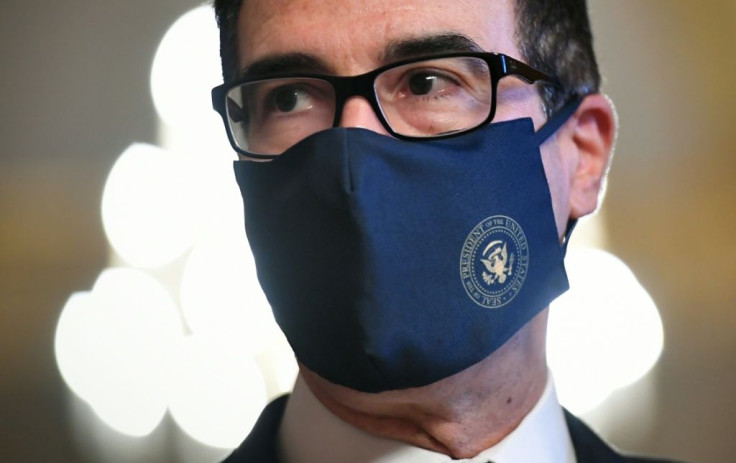Mnuchin Says 'Significant Differences' Remain On Stimulus
Despite months of talks, "significant differences" remain with Democrats on a new US economic stimulus package, Treasury Secretary Steven Mnuchin said Friday, indicating worsening odds for a deal before the November 3 election.
Mnuchin has been negotiating regularly with Democratic House Speaker Nancy Pelosi on a spending measures of around $2 trillion aimed at helping the world's largest economy recover from the Covid-19 downturn.
But the two sides have not been able to agree on how much to spend, or what to spend it on.
"I would say we offered compromises. The Speaker, on a number of issues, is still dug in. If she wants to compromise, there will be a deal," Mnuchin said. "We've made lots of progress, lots of areas, but there's still significant differences."
Trump replied "I think we can" when asked by a reporter if talks with Pelosi could continue, but then sought to blame her for the lack of progress.
"At this moment, I would say that I actually think Nancy would rather wait until after the election" to pass a stimulus package, Trump said.

Economists say the United States needs more government aid to recover from the sharp economic contraction and mass layoffs caused by the pandemic.
The $2.2 trillion CARES Act passed in March has been credited with helping the economy survive the early months, but its main provisions expired, leading to tens of thousands of layoffs at airlines and an end to extra aid small businesses and the unemployed.
Democrats in the House have approved a $2.2 trillion stimulus measure and the White House has proposed spending $1.9 trillion.
But the key sticking points are over how much more aid to give to state and local governments and on liability protections for businesses.
Trump has vowed not to help "poorly run" Democratic-led states and cities.
© Copyright AFP {{Year}}. All rights reserved.





















